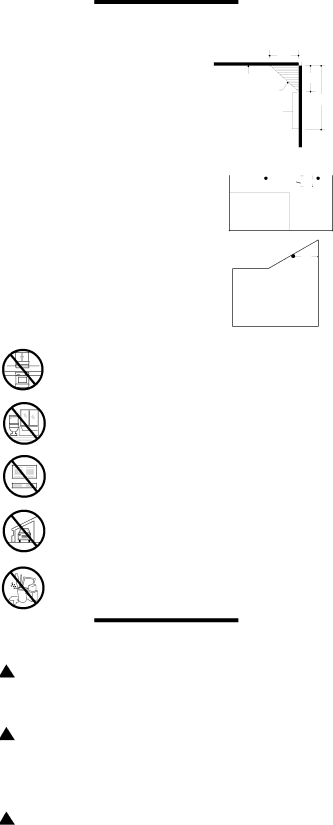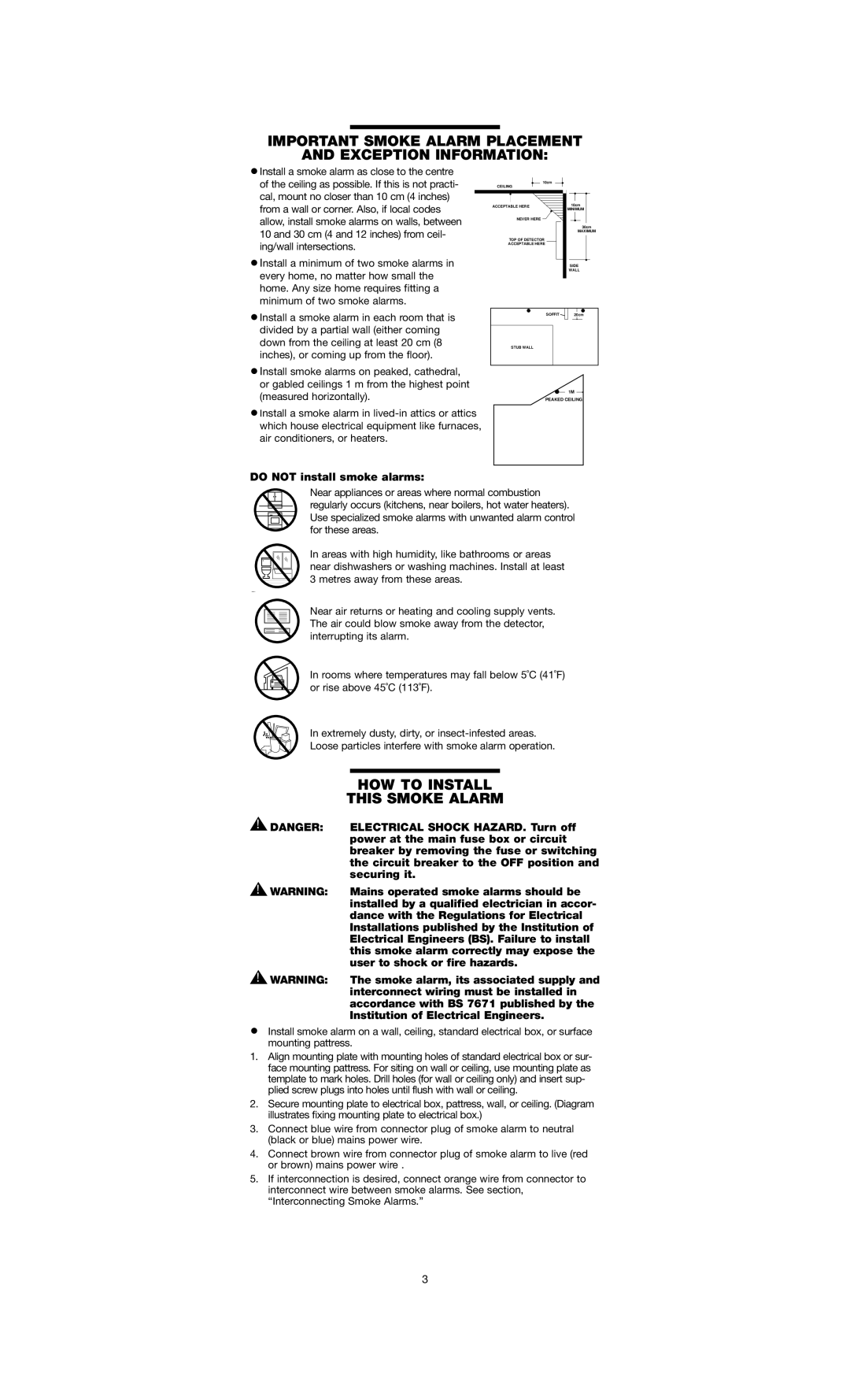
IMPORTANT SMOKE ALARM PLACEMENT
AND EXCEPTION INFORMATION:
•Install a smoke alarm as close to the centre of the ceiling as possible. If this is not practi- cal, mount no closer than 10 cm (4 inches) from a wall or corner. Also, if local codes allow, install smoke alarms on walls, between 10 and 30 cm (4 and 12 inches) from ceil- ing/wall intersections.
•Install a minimum of two smoke alarms in every home, no matter how small the home. Any size home requires fitting a minimum of two smoke alarms.
10cm
CEILING
ACCEPTABLE HERE
NEVER HERE
TOP OF DETECTOR
ACCEPTABLE HERE
10cm
MINIMUM
30cm
MAXIMUM
SIDE
WALL
•Install a smoke alarm in each room that is divided by a partial wall (either coming down from the ceiling at least 20 cm (8 inches), or coming up from the floor).
•Install smoke alarms on peaked, cathedral, or gabled ceilings 1 m from the highest point (measured horizontally).
•Install a smoke alarm in
SOFFIT |
|
|
|
|
|
|
|
| 20cm |
| |
|
|
|
|
|
|
STUB WALL
1M
PEAKED CEILING
DO NOT install smoke alarms:
Near appliances or areas where normal combustion regularly occurs (kitchens, near boilers, hot water heaters). Use specialized smoke alarms with unwanted alarm control for these areas.
In areas with high humidity, like bathrooms or areas near dishwashers or washing machines. Install at least 3 metres away from these areas.
Near air returns or heating and cooling supply vents. The air could blow smoke away from the detector, interrupting its alarm.
In rooms where temperatures may fall below 5˚C (41˚F) or rise above 45˚C (113˚F).
In extremely dusty, dirty, or
Loose particles interfere with smoke alarm operation.
|
| HOW TO INSTALL |
|
| THIS SMOKE ALARM |
! | DANGER: | ELECTRICAL SHOCK HAZARD. Turn off |
|
| power at the main fuse box or circuit |
|
| breaker by removing the fuse or switching |
|
| the circuit breaker to the OFF position and |
|
| securing it. |
! | WARNING: | Mains operated smoke alarms should be |
|
| installed by a qualified electrician in accor- |
|
| dance with the Regulations for Electrical |
|
| Installations published by the Institution of |
|
| Electrical Engineers (BS). Failure to install |
|
| this smoke alarm correctly may expose the |
|
| user to shock or fire hazards. |
! | WARNING: | The smoke alarm, its associated supply and |
|
| interconnect wiring must be installed in |
|
| accordance with BS 7671 published by the |
|
| Institution of Electrical Engineers. |
•Install smoke alarm on a wall, ceiling, standard electrical box, or surface mounting pattress.
1.Align mounting plate with mounting holes of standard electrical box or sur- face mounting pattress. For siting on wall or ceiling, use mounting plate as template to mark holes. Drill holes (for wall or ceiling only) and insert sup- plied screw plugs into holes until flush with wall or ceiling.
2.Secure mounting plate to electrical box, pattress, wall, or ceiling. (Diagram illustrates fixing mounting plate to electrical box.)
3.Connect blue wire from connector plug of smoke alarm to neutral (black or blue) mains power wire.
4.Connect brown wire from connector plug of smoke alarm to live (red or brown) mains power wire .
5.If interconnection is desired, connect orange wire from connector to interconnect wire between smoke alarms. See section, “Interconnecting Smoke Alarms.”
3
